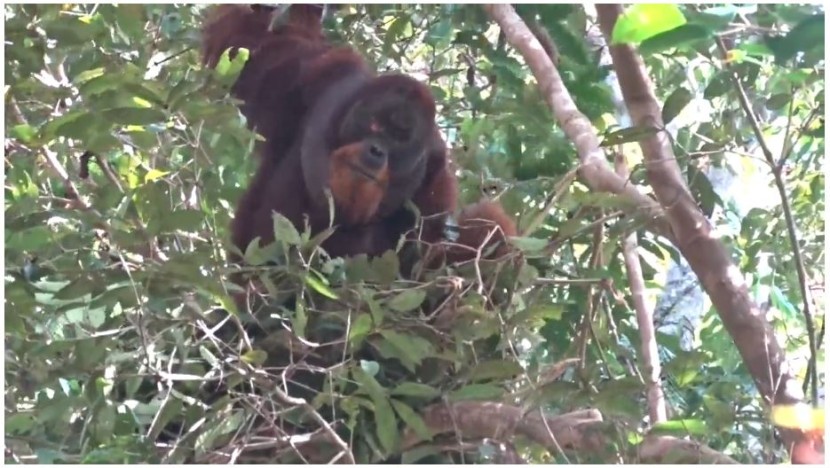
Simian, heal thyself.
An ape in Southeast Asia is the first wild animal found to have used a medicinal plant to treat its own injuries, according to a study published this week in the journal Scientific Reports.
The Sumatran orangutan, an adult male known as Rakus, suffered wounds to its face that were apparently inflicted during a fight with another male orangutan in the Gunung Leuser National Park on the Indonesian island of Sumatra.
On June 25, 2022, three days after researchers spotted the sores under Rakus' right eye and inside its mouth, the primate was caught on camera "selectively" tearing leaves from a vine that grows in tropical forests.
Rakus "chewed on them, and then repeatedly applied the resulting juice onto the facial wound," the study stated.
"As a last step, he fully covered the wound with the chewed leaves," the authors wrote.
The plant, known as Akar Kuning, is among several from the liana species that are known locally as a remedy for pain, fever and fluid buildup in the body, and are used in traditional medicine to treat diseases including dysentery, diabetes and malaria.
They also contain chemical compounds with "antibacterial, anti-inflammatory, anti-fungal, antioxidant, and other biological activities" that can promote the healing of wounds, according to the study.
Rakus was recorded eating leaves from the vine the following day and by June 30, 2022, the sore on its face had closed without getting infected.
One month after Rakus began the treatment, it was barely visible.
The simian self-medication is the "first systematically documented case of active wound treatment with a plant species know to contain biologically active substances by a wild animal," the study noted.
The episide also "provides new insights into the origins of human wound care," according to the researchers.
Lead author Isabelle Laumer, a primatologist at Germany's Max Planck Institute of Animal Behavior in Konstanz, told NBC News that Rakus may have picked up the trick by accidentally touching a wound with the pain-relieving juice — or from other orangutans.
"They learn a lot, for example, about what types of fruit to eat, where to find them, when to find them, when they are ripe, how to process them," Laumer said. "Some orangutans feed on up to 400 different plants."
Laumer added: "This is quite some intensive knowledge that they actually need to acquire."








